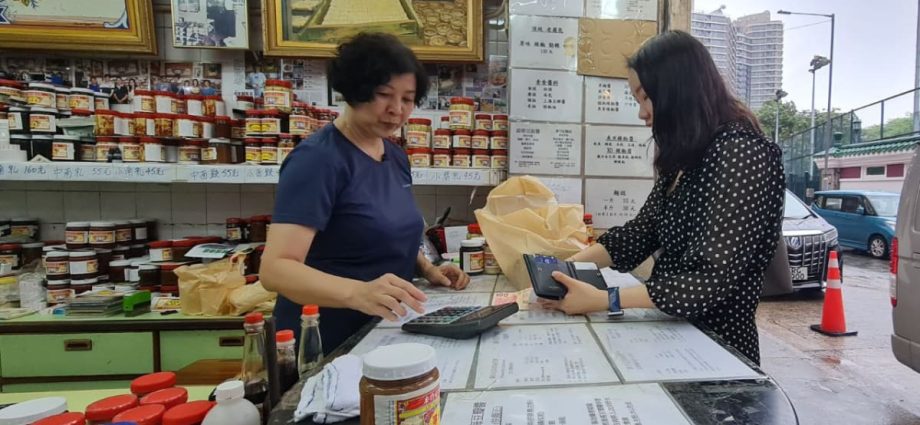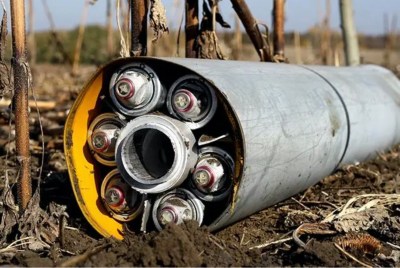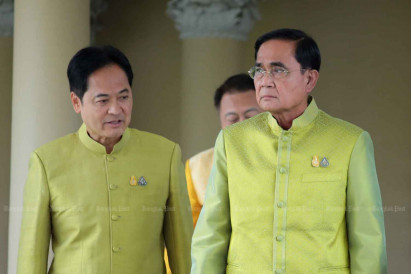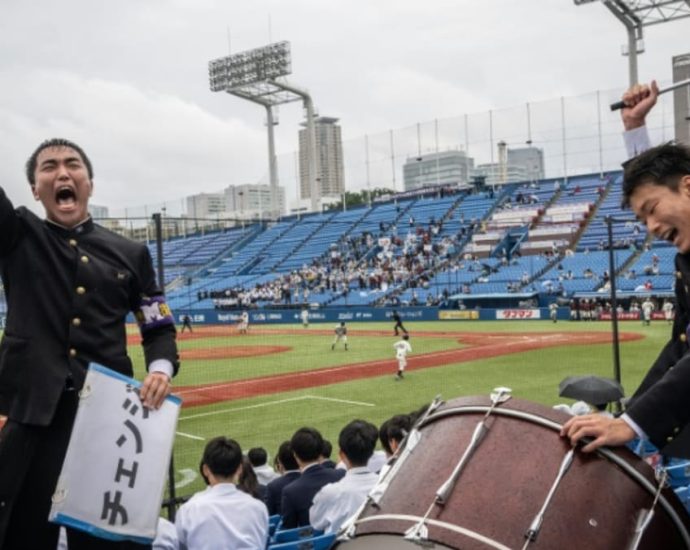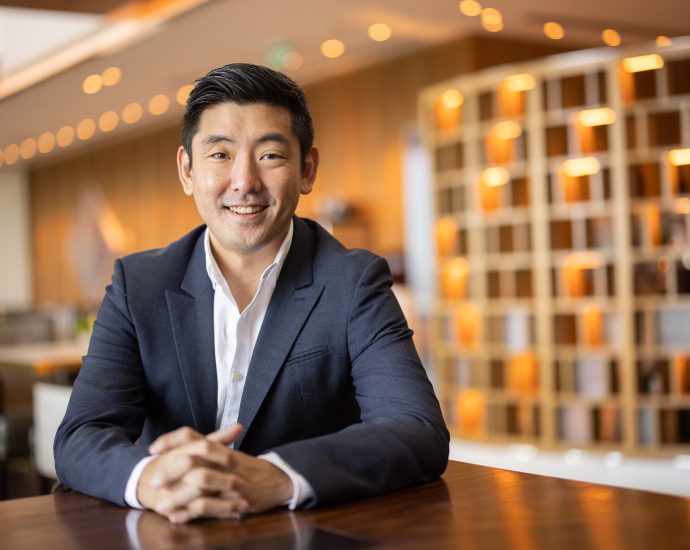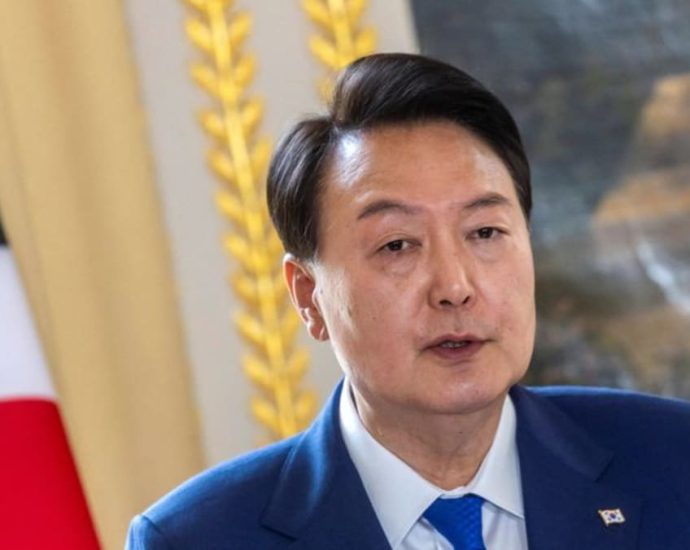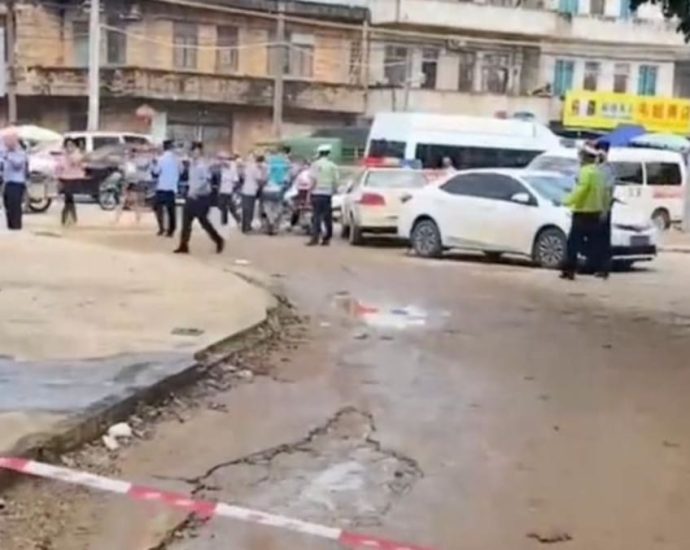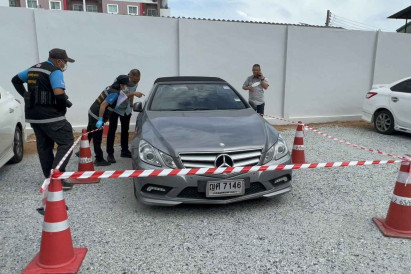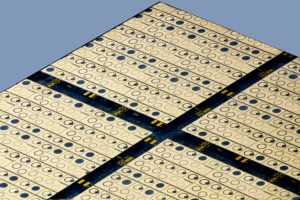Chinese tourists to Hong Kong, Macao look for more culturally immersive experiences

“As a practitioner in the tourism trade, we see the business logic and opportunity for delving into different communities.”
Smaller merchants, like 118-year-old preserved beancurd shop Liu Ma Kee, have reaped the benefits.
Since China’s reopening, it has made 30 per cent more in sales.
Owner Liu May Tsoi said: “We run a family business. When tourists come in, they tend to chat with us. We want our visitors to feel like home. This feeling is more important when it comes to the development of the city.”
OFF THE BEATEN PATH
Trips to Cheung Chau, an island long seen as a quiet escape away from Hong Kong, have also become more popular.
Travellers have been posting about their adventures to local streets as well as hikes that are off the beaten path on Chinese social media app “Xiao Hong Shu”.
When CNA made the trip to the island, even on a weekday, the ferry – the only way to get to the island southwest of Hong Kong – was nearly at full capacity.
Many of the visitors were from mainland China. Some were there to experience “more authentic and traditional” aspects of the country.
SOME BUSINESSES LAGGING
While some have benefitted, others are struggling to find their space in a new market.
Taipa Village across the sea in Macao is a feast for the senses – the smell of pork chop buns, and Portuguese egg tarts, and the buzz of snaking queues weaving into the next.
Biden belatedly relents on cluster bombs for Ukraine
Washington’s delayed decision to provide Ukraine with cluster munitions, a controversial weapon banned by many US allies, is exposing the risks of depending on a distant and sometime slow-acting power with its own interests primarily at heart.
Since the Ukraine war’s beginning 18 months ago, the US has spearheaded a massive Western campaign of military aid to Kiev, yet it often makes decisions in reaction to Russia’s largely predictable moves on the battlefield.
Advanced air defense weaponry, for instance, was supplied only after Russian planes and drones had bombarded Ukrainian military positions and towns.
Supplies of advanced, longer-range artillery like the High Mobility Artillery Rocket System (HIMARS) only came after Russia began to hit Ukrainian positions from further and further distances.
Ukraine is now lobbying heavily for fighter jets, but so far to no avail due to concerns it would escalate the conflict in unpredictable ways. Moscow has repeatedly threatened to use tactical nuclear weapons in the conflict.
Over the weekend, US President Joe Biden decided to supply Ukraine with cluster bombs, which are launched in flocks over a wide area from a single shell. Ukrainian officials had requested them more than seven months ago for use in a planned counteroffensive campaign.
The Biden administration refused the request and the Ukrainians launched the broad counterattacks on Russian forces anyway without them. Progress on the ground has been slow and Ukrainians are beginning to publicly complain.
The delayed cluster munitions supply decision reflects the sometimes frustrating disconnect between Washington’s decision-makers and Kiev’s commanders on the ground over how best to prosecute the war.
Critics say the US, by far the main supplier of weapons to Ukraine, is sometimes slow in anticipating shifting battlefield necessities for fear of seeming the aggressor in a war Russia instigated.
In this case, Ukraine wanted the cluster bombs as part of an arsenal to use in its current campaign to help drive Russian troops eastward and out of the country.

Under pressure to show military progress to impress its allies, Kiev launched the offensive not only without the cluster munitions but also in the face of dwindling artillery ammunition and the lack of air power support it desires.
Biden seemed apologetic when he announced the cluster bomb decision over the weekend. He suggested it is meant not to become a permanent part of Ukraine’s military kit, but rather a temporary supplement to its dwindling supplies of artillery shells.
“It was a very difficult decision on my part,” Biden said. “The Ukrainians are running out of ammunition. And so, what I finally did – I took the recommendation of the Defense Department to not permanently but to allow for this transition period.”
Biden’s stated reluctance apparently aimed to mitigate both domestic and foreign concerns about the weapons’ deployment. In February 2022, Biden officials decried reports of Russia’s use of cluster munitions. “We have seen the reports. If that were true, it would potentially be a war crime,” said then-spokesperson Jen Psaki.
The next month, Linda Greenfield-Thomas, the US ambassador to the United Nations, told the General Assembly that she had seen reports of Russia moving cluster bombs, “which are banned under the Geneva Convention” into Ukraine.
In reality, neither the US, Ukraine nor Russia prohibits the use of cluster munitions. Eastern European NATO allies along Russia’s border also embrace the weapon, while several NATO allies to the West prohibit them – hence Biden’s message that the shipment is a temporary decision to fill a logistical hole.
More than 120 countries have banned cluster bomb use. Last week, Human Rights Watch, the international rights monitor, decried the use of cluster bombs by both Ukrainians and Russians.
“Ukrainian forces have used cluster munitions that caused deaths and serious injury to civilians. Russian forces have extensively used cluster munitions, causing many civilian deaths,” HRW said in its report.
“Both countries should stop using these inherently indiscriminate weapons, and no country should supply cluster munitions because of their foreseeable danger to civilians,” HRW concluded.
However, Ukraine views the Biden administration’s decision as more than a temporary fix, said Ryan Brobst, a research analyst for the Foundation for Defense of Democracies, a Washington-based lobbying outfit.
“Cluster munitions are more effective than unitary artillery shells because they inflict damage over a wider area,” said Brobst. “This is important for Ukraine as they try to clear heavily-fortified Russian positions.”
Ukrainian officials, hoping to soothe allied concerns, pledged to only use them on military targets and not to drop them on Russia.
The US military possesses as many as three million cluster munitions, according to reports. The Ukrainians will fire them via 155-millimeter artillery shells that are already widely in use rather than dropping them from jet bombers, the more advanced method.
That’s because the US and its allies have supplied artillery pieces in the hundreds to Ukraine but not provided F-16 fighter jets, which are atop Ukraine’s current weaponry wish list.
The Ukrainians also desire new air defense systems and more advanced tanks, which have been promised but not yet delivered, according to reports
Biden’s cluster bomb decision coincided with a sudden outburst of pessimism from Ukrainian officials about the course of the war.
Ukraine’s usually upbeat President Volodymyr Zelensky sourly told reporters that allied help was welcome but the tardiness of actual weaponry shipments has done harm to the war effort.

“I’m grateful to the US as the leaders of our support,” Zelensky said. “But I told them that we would like to start our counteroffensive earlier, and we need all the weapons and materiel for that. Why? Simply because if we start later, it will go slower.”
The delays reportedly allowed Russia more time to prepare its defenses. “Everyone understood that if the counteroffensive unfolds later, then a bigger part of our territory will be mined,” Zelensky said. “We give our enemy the time and possibility to place more mines and prepare their defensive lines.”
General Valerii Zaluzhnyi, Ukraine’s top military commander, meanwhile said Ukraine’s allies have not supplied him with enough advanced weapons to effectively push the offensive.
“Without being fully supplied, these plans are not feasible at all,” he told the Washington Post last month. “But they are being carried out. Yes, maybe not as fast as the participants in the show, the observers, would like, but that is their problem.”
Ukrainian journalist Mykhailo Podolyak delivered an unusually bitter critique of the slow Western response to his country’s military needs. “Every decision has to be literally gnawed out with teeth, wasting months of empty talk,” he wrote on Twitter.
Russia, meanwhile, was critical of Biden’s decision to supply cluster munitions — without, of course, mentioning its own rampant use of the weapon.
“It is an act of desperation and shows weakness against the backdrop of the failure of the much-touted Ukrainian counteroffensive,” Russia’s foreign ministry spokeswoman Maria Zakharova said in a written statement.
Anucha resigns as PM’s spokesman to take MP post

Anucha Burapachaisri, the prime minister’s deputy secretary-general and acting government spokesman, has resigned to fill a vacancy as a list MP of the United Thai Nation Party.
He tendered his resignation on Monday morning and met caretaker Prime Minister Prayut Chan-o-cha to say farewell.
Gen Prayut gave him his blessing and wished him well in performing his new duties to the best of his ability and for the good of the country and the people, Mr Anucha said.
Mr Anucha said he thanked the prime minister for entrusting him with the job of deputy secretary-general for political affairs and twice as government spokesman during the past three years. As a PM’s deputy secretary-general, he was assigned to oversee foreign affairs, coordinate political work and supervise the Office of the Spokesman.
He said the prime minister had redistributed his responsibilities among the three remaining deputies.
Mr Anucha’s promotion up the party list fills the vacancy for an MP caused by the resignation of party leader Pirapan Salirathavibhaga, who was top of the party list.
He said he expected to received a letter from the parliament certifying him as a new list MP of the United Thai Nation Party on Monday. He would report to the secretariat of the House of Representatives on Wednesday and jattend the parliamentary session in voting to select the new prime minister on Thursday.
Japan’s macho cheerleaders fight to save a tradition
TOKYO: They are drenched in sweat, their hands bloodied from clapping, and their voices hoarse from shouting – meet Japan’s predominantly male and unashamedly macho “leadership section” cheerleaders. The cheerleaders are part of a century-old tradition that some fear faces an existential crisis, with fewer students showing an interest inContinue Reading
Paywatch, Visa sign MoU to promote financial inclusion among Asiaâs workforce
Aims to bridge gap between traditional banking & Asia’s unbanked
Plans to expand across Asia via Visa’s cross-border capabilities, network
Paywatch, an Earned Wage Access (EWA) startup based in Malaysia, announced last week an MoU with Visa to promote financial inclusion among Asia’s workforce. In a statement, the firm said it aims to…Continue Reading
South Korea’s Yoon heads to NATO summit amid North Korea, China tensions
SEOUL: South Korean President Yoon Suk-yeol was set to depart on Monday (Jul 10) for a summit with North Atlantic Treaty Organization (NATO) leaders, seeking deeper international security cooperation amid rising North Korean threats and tension over China. Yoon’s attendance at the annual NATO gathering that begins in Lithuania onContinue Reading
Six killed in kindergarten attack in China; suspect detained

A suspect has been arrested after six people were killed and one wounded in a stabbing at a kindergarten in China’s Guangdong province on Monday (Jul 10).
“The victims include one teacher, two parents and three students … and one suspect has been arrested,” said a spokesperson for the city government.
The spokesperson did not offer details about the identities or ages of the victims, nor the weapon used in the attack.
The attack in Lianjiang county happened at about 7.40am and the police arrested a 25-year-old man surnamed Wu at about 8am. The local police called it a case of “intentional assault”.
Authorities are investigating the cause of the attack.
The incident was the top-trending discussion on Weibo, a social media platform, with 130 million views as of 12.20pm.
SPATE OF ATTACKS
While guns are strictly controlled, China has been struggling with a spate of mass stabbings.
Fatal attacks targeting students and schools have occurred nationwide in recent years.
The attacks have forced authorities to step up security and prompted calls for more research into the root causes of such violent acts.
Last August, three people were killed and six others wounded in a knife attack at a kindergarten in southeast China’s Jiangxi province.
In April 2021, two children were killed and 16 others wounded when a knife-wielding man entered a kindergarten in southern China.
In June of the previous year, 37 students and two adults were wounded by a knife-wielding attacker at a primary school in southern China.
And in November 2019, a man climbed a kindergarten wall in southwest Yunnan province and sprayed people with a corrosive liquid, wounding 51 of them, mostly students.
The same year, eight schoolchildren died and two others were wounded in a “school-related criminal case” in the central Hubei province, with a 40-year-old man arrested.
And in April 2018, a 28-year-old man killed nine college students and injured 12 others outside their school in the northern province of Shaanxi.
The attacker later said he acted out of revenge after being harassed by a student at the same school.
Two questioned about German businessman’s disappearance

CHON BURI: Two foreigners were called in for questioning at Nong Prue police station in Bang Lamung district on Sunday night in connection with the disappearance of German property broker Hans Peter Ralter Mack.
The two foreigners, whose nationalities and identities were not disclosed, were accompanied by their lawyers.
Pol Col Tawee Kudthalaeng, Nong Prue police chief, said the two declined to give statements, saying their lawyers would represent them in any legal proceedings.
A woman suspected of involvement in Mr Mack’s disappearance was earlier called in for questioning. She declined to cooperate, saying her lawyer would act on her behalf.
Later on Sunday night, Pol Maj Gen Theerachai Chamnanmor, chief investigator of Provincial Police Region 2, led immigration and tourist police, with a court warrant, to search house 21/302 in Chok Chai Garden 2 housing estate at Moo 10 in tambon Nong Prue. The house belonged to one of the suspects. Police did not find anything suspicious in the house.
Sources said investigators had detected suspicious financial transactions totalling about 2 million baht which might be linked to the man’s disappearance.
Mr Mack, 62, has not been seen since July 4. His Thai wife, Piriya Boonmark, said he left their Swiss Paradise housing estate home in Pattaya in his Mercedes Benz to meet a foreign property broker he had recently met.
The family filed a missing person complaint with police on July 5 and later offered a reward of 3 million baht for information on Mr Mack’s whereabouts, and 100,000 baht on his car.
The silver Mercedes-Benz E350 coupe was found by police on Sunday morning in the CC Condominium parking lot on Khao Noi road in tambon Nong Prue. The interior surfaces had been wiped clean with a chemical cleanser.

Hans Peter Mack, the missing 62-year-old German businessman. (Photo: Chaiyot Pupattanapong)
Six dead in China kindergarten stabbing

Six people have been killed and one injured in a stabbing in a kindergarten in China’s south-eastern Guangdong province, police tell the BBC.
Police said they have arrested a 25-year-old man and are investigating the cause of the attack.
They have not revealed any details about the victims but called it a case of “intentional assault”.
They said the attack happened on Monday at 07:40 local time (23:40 Sunday GMT).
This breaking news story is being updated and more details will be published shortly. Please refresh the page for the fullest version.
You can receive Breaking News on a smartphone or tablet via the BBC News App. You can also follow @BBCBreaking on Twitter to get the latest alerts.
How Chinaâs gallium and germanium bans will play out
From August, China is to restrict exports of gallium and germanium, two critical elements for making semiconductor chips.
With China dominating the supply of both elements, exporters will now need special licenses to get them out of the country. The move has the potential to harm a range of Western tech manufacturers that use these elements to make their products.
The move is reportedly in response to Western restrictions on equipment vital for making semiconductor devices.
Above all, the US CHIPS and Science Act of 2022 curtailed exports of high-end microchips and technology to China, potentially affecting Beijing’s capacity for high-performance computing in areas such as defense. Other nations such as Japan and the Netherlands have also imposed restrictions.
So how important are the new Chinese restrictions and what are the implications likely to be?
Silicon is the most widely used material in semiconductors, and is very abundant. But germanium and gallium have specific properties that are hard to replicate and lend themselves to certain niche applications. These get incorporated into countless devices such as smartphones, laptops, solar panels and medical equipment, as well as defense applications.
Both elements are also crucial to technological advancement over the next few years. Germanium is particularly useful in space technologies such as solar cells because it is more resistant to cosmic radiation than silicon.
With the physical limits of silicon being approached in some technologies, increased use of germanium is mooted as a way of overcoming these limits. It is already used in small quantities in some semiconductors to improve things like electron flow and thermal conductivity.

As for gallium, 95% of it is used in a material called gallium arsenide, which is used in semiconductors with higher performance and lower power-consumption applications than silicon. These are used in things like blue and violet LEDs and microwave devices.
Meanwhile, gallium nitride is used in semiconductors in components for things like electric vehicles, sensors, high-end radio communications, LEDs and Blu-Ray players. Its use is expected to grow significantly.
Both gallium and germanium are on the European Union and US lists of critical elements. The UK considers gallium to be critical to its manufacturing interests, though sees germanium as less important.
China controls about 60% of all germanium supplies. The element is derived in two main ways, as a by-product of zinc production and from coal. These respectively account for about 75% and 25% of the total supply.
China dominates germanium that comes from zinc production. The US is one of the alternative suppliers, with deposits in Alaska and Tennessee and additional refining capacity in Canada. But as it stands, the US is still over 50% reliant on imported germanium.
Germanium from coal has several drawbacks. Two of the main producers are Russia and Ukraine, and the war has affected supplies to the west from both countries. In the years 2017-20, Russia was supplying 9% of the US germanium requirement, for instance, but this is now likely to have stopped.
In response to the Chinese restrictions, Russia plans to increase germanium production for its domestic market. This may at least alleviate global demand, even if it won’t help the West directly.
Germanium from coal is also at the mercy of the power industry, since certain coals rich in the element are burned as an energy source. In addition, germanium from coal will become more difficult as much of the world seeks to phase out coal power, which again could tighten supplies.

With gallium, China accounts for around 80% of the world supply, deriving it mainly from aluminum production. There’s actually no shortage of gallium, but even before the new controls, the supply was restricted by a lack of production capacity.
Gallium is also obtained by recycling semiconductor wafers, which are thin slices of semiconductor used in electronic circuits. But once the circuits are integrated into products, the quantities of gallium in each one are so small that it becomes challenging to recycle.
A Nature Communications paper in 2022 noted that gallium is “almost never functionally recycled” once it reaches final products.
The full impact of China’s new export regime depends on a number of factors, including the severity of the controls in practice, and the response of Western governments and companies. As it stands, the controls look likely to lead to higher prices for gallium and germanium, as well as longer delivery times.
This could make it more expensive and difficult for Western companies to produce electronic devices, which could in turn lead to higher prices for consumers. It could also make it more difficult for Western companies to compete with Chinese companies.
In an echo of how the global microchip shortage during the Covid pandemic considerably affected tech manufacturing, this points to a significant impact on the global economy.
The long-term effects of the controls are difficult to predict because so many factors are involved. Stockpiles of the elements should help to some extent: the US has said it holds inventory of germanium, though not gallium.
Western manufacturers may be forced to diversify their supply chains by obtaining components containing the elements from countries to which China is willing to export. This could lead to increased costs and complexity.
Another avenue is to increase production from alternative sources. In the past, germanium has been derived from minerals mined in Germany, Latin America and Africa, so these options may come back on the table. There is also the potential to invest in researching devices that are less reliant on these critical materials, but that would take time to bear fruit.
Clearly, the move is a significant escalation in the tech war between China and the West. The concern is that it could go further: China dominates the supply of a whole range of vital materials known as rare earth metals, as well as other materials which are required for the clean energy transition. Even before the escalation in hostilities over the past couple of years, China had used its dominance over certain materials as leverage in trade disputes.
So this latest development is concerning to say the least. At a time when the international challenges faced by humanity are greater than ever, the emergence of a new resource nationalism is the last thing anyone needed.
Gavin D J Harper, Research Fellow, Birmingham Centre for Strategic Elements & Critical Materials, University of Birmingham
This article is republished from The Conversation under a Creative Commons license. Read the original article.

